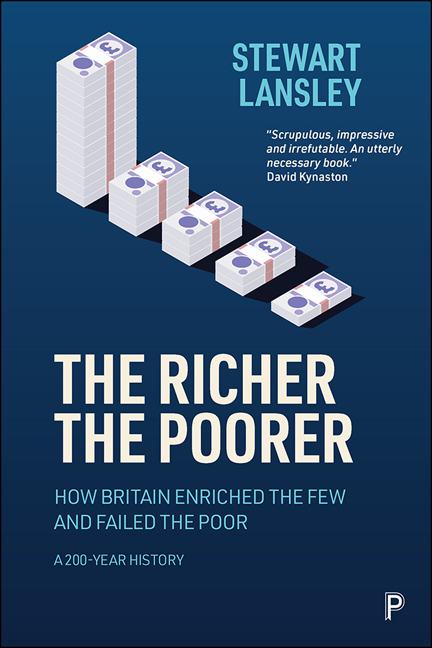Book contents
- Frontmatter
- Miscellaneous Frontmatter
- Dedication
- Epigraph
- Contents
- List of figures
- Preface and acknowledgements
- Introduction: Knighthoods for the rich, penalties for the poor
- PART I 1800–1939
- PART II 1940–59
- PART III 1960–79
- PART IV 1980–96
- PART V 1997–2010
- PART VI 2011–20
- Afterword: COVID-19 and ‘the polo season’
- Notes
- Index
5 - The future belongs to us
Published online by Cambridge University Press: 13 May 2022
- Frontmatter
- Miscellaneous Frontmatter
- Dedication
- Epigraph
- Contents
- List of figures
- Preface and acknowledgements
- Introduction: Knighthoods for the rich, penalties for the poor
- PART I 1800–1939
- PART II 1940–59
- PART III 1960–79
- PART IV 1980–96
- PART V 1997–2010
- PART VI 2011–20
- Afterword: COVID-19 and ‘the polo season’
- Notes
- Index
Summary
The war years were to have a profound effect on the destiny of the generation that lived through them. The lingering memories of the bruising years of the depression and the personal costs of war were critical factors in the political and social earthquake that was to come. Both put the public's patience with their lot, the hierarchical structures that defined life chances and the sense of entitlement of the rich under severe strain.
A patrician last fling
The top social tier had a strong sense of what was to come. Despite its grandeur, Rosalind Cubitt's party in the summer of 1939 was infused with foreboding. The occasion turned out to be the last of the full-blown debutant parties, a patrician last fling. Henry Channon called it ‘a sunset glow before the storm’.
Traditional high society pastimes, from polo to fox hunting, petered out. Restrictions on foreign currency limited overseas excursions, if fuelling a lively and lucrative currency black market. With cooks, butlers, gardeners and maids called up or redeployed to vital civilian tasks, a major preoccupation of the wealthy classes was the loss of servants. Grandee houses still required a small army of servants and a sizeable fortune to run them. In 1939, at the grand Londonderry House at the south end of Park Lane, there was a staff of forty-four. The Duke of Bedford owned two fully staffed townhouses in London's Belgrave Square and kept more than fifty servants at Woburn. ‘The whole social edifice came crashing down’, described two historians, ‘for the abrupt disappearance of servants made the old style of life no longer possible, regardless of the level of affluence.’
Many of the wealthy played their part in the war effort, just as they had in 1914–18. More historic homes that had not already been sold off were requisitioned for use as barracks, hospitals or schools for those displaced from urban centres. The new central controls on trade, prices, investment and profits eroded the incomes of some of the financial elites. Rent levels were pegged, and with no buyers, the prices of property and art and furniture collections fell sharply. Then there was the deepening shadow of the Inland Revenue.
- Type
- Chapter
- Information
- The Richer, the PoorerHow Britain Enriched the Few and Failed the Poor: A 200-Year History, pp. 51 - 58Publisher: Bristol University PressPrint publication year: 2021



